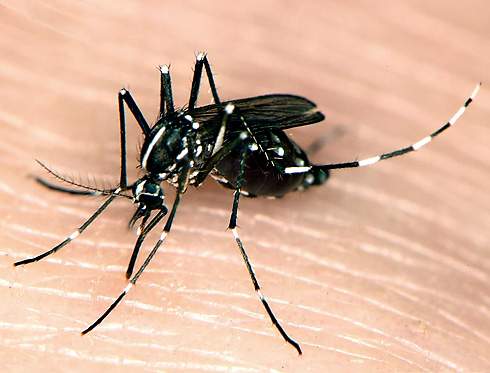Orange County Mosquito and Vector Control District
Invasive Aedes Mosquitoes Increase in Numbers as they Spread Across Orange County
Garden Grove, CA. The Orange County Mosquito and Vector Control District (OCMVCD) has seen a significant increase in the presence of the invasive Aedes mosquitoes within Orange County. The mosquito species Aedes aegypti (yellow fever mosquito) and Aedes albopictus (Asian tiger mosquito) are not native to the county and are capable of transmitting debilitating viruses including dengue, chikungunya, yellow fever and Zika. While these viruses are not currently transmitted locally, transmission could begin if someone infected abroad returns to Orange County and is bitten by the invasive mosquito. Vector Control officials are urging residents to take the necessary precautions to reduce mosquito breeding and to avoid bites from these aggressive day-biting mosquitoes.
The District’s surveillance and increased calls from residents confirm that in 2017, the presence of the invasive Aedes mosquitoes has increased in acreage by 330% within Orange County since last year.
The mosquitoes have been detected in the cities of Anaheim, Buena Park, Costa Mesa, Garden Grove, Huntington Beach, La Habra, Lake Forest, Mission Viejo, Newport Beach, Orange, Santa Ana and Westminster. The presence of these mosquitoes was confirmed for the first time earlier this year in the cities of Brea and Irvine.
Some of the highest populations of these mosquitoes are currently found in neighborhoods in Santa Ana. In an effort to reduce the number of these invasive mosquitoes within these impacted neighborhoods, OCMVCD will continue to conduct door-to-door inspections of residential properties to eliminate standing water where mosquitoes can breed, control for adult mosquitoes with the homeowner’s permission, and educate the residents about breeding sources and how to eliminate them on their own.
“The rapid and intense spread of these mosquitoes will impact our quality of life in Orange County,” said Lora Young, Director of Communications. “Residents play a critical role in helping to control the spread of this mosquito. We are urging residents to eliminate containers of water and reduce breeding sources for these mosquitoes.”
These day-biting mosquitoes flourish in urban environments and prefer to lay eggs in man-made containers that can hold water. Female mosquitoes lay their eggs in containers holding as little as a teaspoon of water. Their eggs, which are laid just above the water line, can survive without water for six months or more making them difficult mosquitoes to eliminate.
Once an introduction of these invasive Aedes mosquitoes has occurred, residents moving materials (potted plants, plant cuttings, buckets, containers, etc.) from infested areas to non-infested areas may facilitate their spread.
Residents should take the following precautions to help reduce the chances of being bitten by mosquitoes:
• Empty any containers filled with water once a week
• Clean and scrub bird baths and pet water bowls weekly
• Dump water from potted plant saucers
• Do not transport or share plant stems rooted in water
• Wear long sleeves and pants when outdoors
• Ensure screens on doors and windows are in good repair
• Apply mosquito repellents to exposed skin before going outdoors
Orange County Residents are urged to report unusual numbers of mosquitoes, or day-biting mosquitoes, to OCMVCD at (714) 971-2421 or by visiting the website at OCvector.org.
For more information, please contact the Orange County Mosquito and Vector Control District at (714) 971-2421 or (949) 654-2421, or visit www.ocvcd.org.
